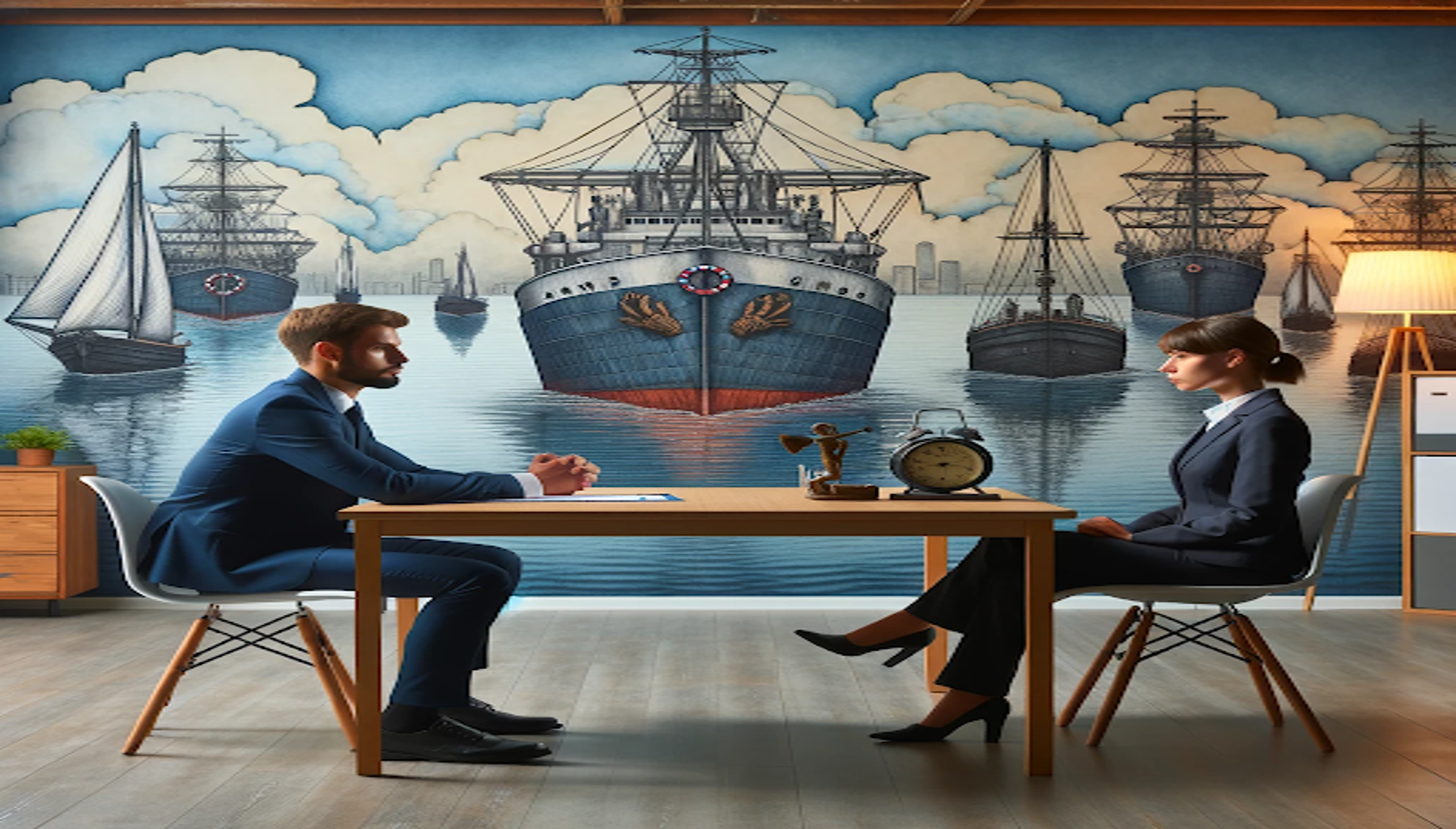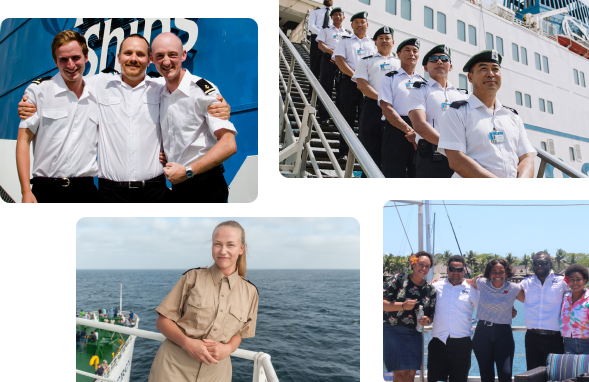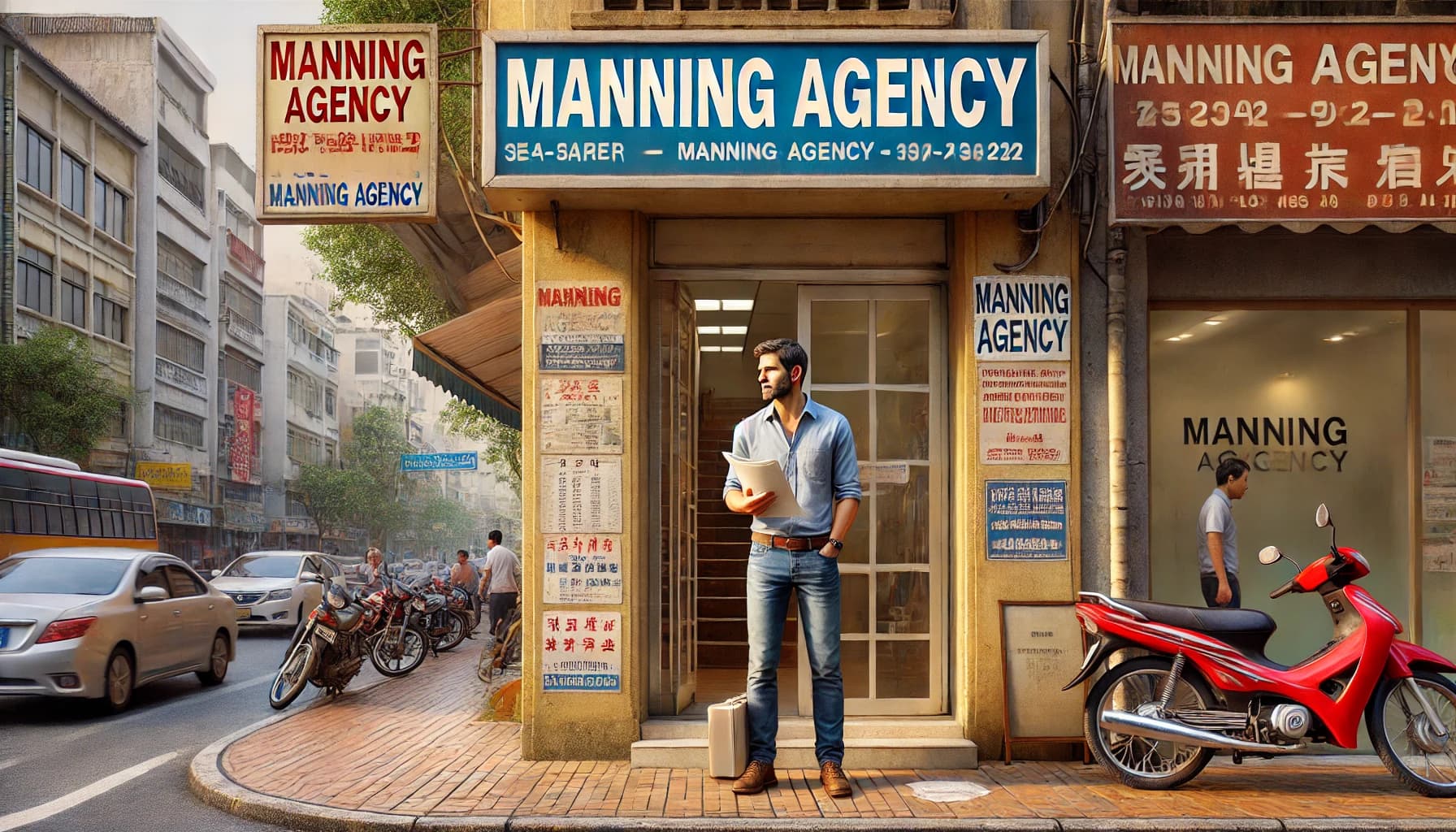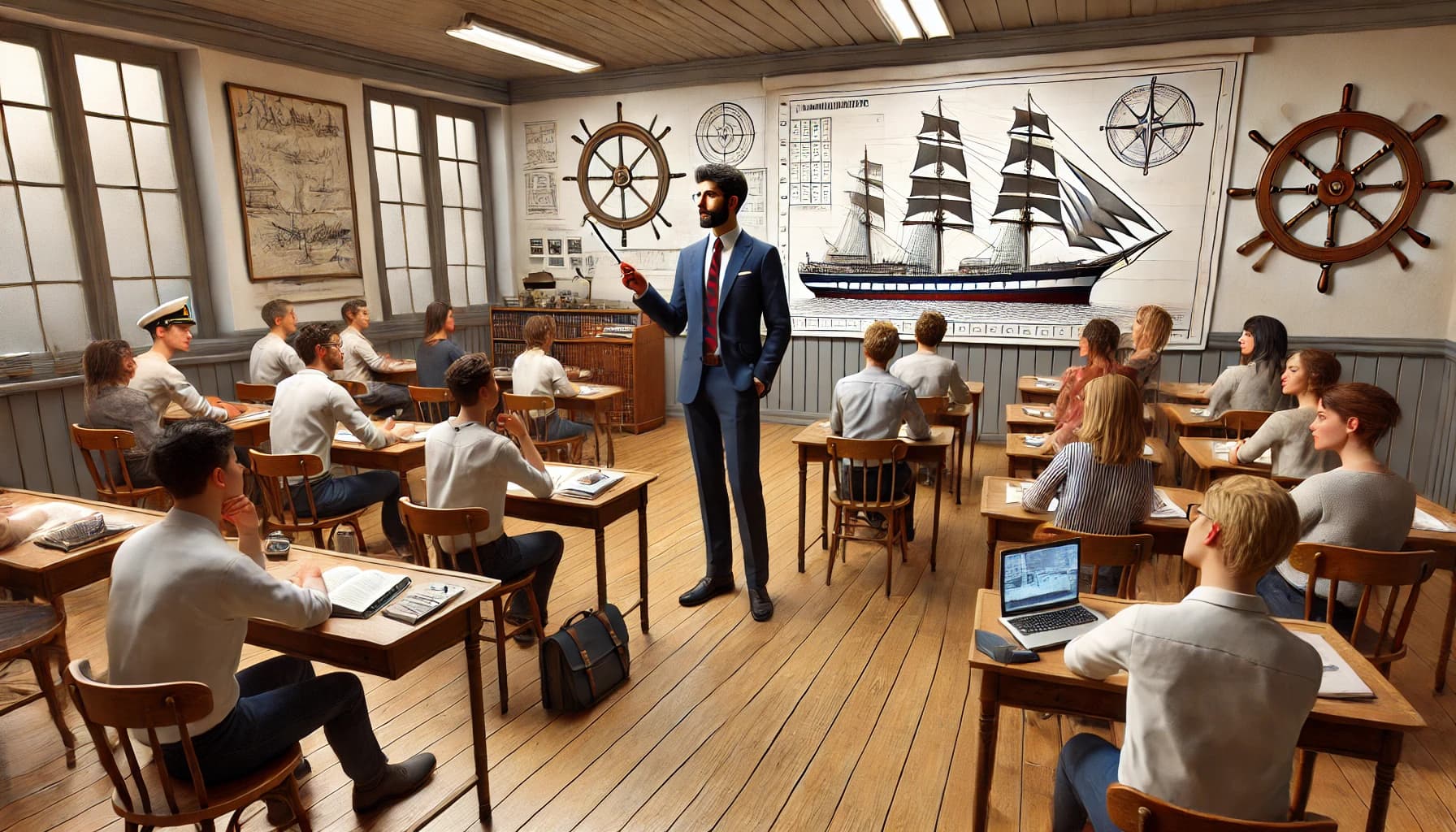9 Mistakes to Avoid When Interviewing for Seafarer Jobs
Nov 20, 2019 · 13 mins read ·
Job Seeker Tips
If you’re ready to line up your next contract and are currently looking for seafarer jobs, you might also have been invited to an interview.
No matter whether it’s your 2nd, 20th or 200th (or so it might feel like!) interview, it never hurts to brush up on your technique and give yourself a greater chance of winning that job for a seaman that you really want.
With that in mind, we’ve put together some tips and tricks for things that you really should avoid if you want to nail that interview rather than blow it!
Don't do these 9 things when you're in a seafarer job interview
1. Not being prepared
If your interview is taking place in the shipping company, manning agency, or maritime recruitment agency’s office, make sure you know where it is and how to get there.
It sounds obvious but if you’re making an unfamiliar journey and if you don’t plan your route and work out how long it’s going to take you to get there, you could wind up being late for your interview.
This will annoy your interviewer and make you look like you’re not serious about the job. Even worse, they might refuse to see you - especially if they have other seafarers scheduled for interviews on the same day.
The solution: If you can, do a trial run of the route beforehand. If you can’t do that, at least check Google Maps out and figure out your journey and/or transport in advance to see approximately how long it will take.

2. Not doing your homework
One thing that will always set the red flags flying for a potential employer is having a candidate who turns up to an interview and doesn’t know anything about the company they’ve applied for a job with.
It’s true that seafarer jobs are more often than not short term contracts but that’s still no reason not to make the effort.
Put yourself in the interviewer’s shoes: would you want to hire a candidate who shows no interest in impressing you?
It might “only” be a six month contract you’re hoping to get, but if knowing something about the company you’re applying to gives you the edge over the eight other candidates you’re up against, why not take ten minutes to do a quick spot of research?
The solution: It’s back to good old Google (or your preferred internet search engine!): check out the company’s website and take a look at their social media accounts. For example, Martide’s LinkedIn page should tell you everything you need to know about the company in just a couple of clicks!

3. Not dressing to impress
Okay, we know that you’re applying for seafarer jobs and not a position in the fashion industry but it doesn’t hurt to be well turned out.
We’re not suggested you need to wear a suit and tie, but it doesn’t hurt to turn up looking neat and tidy. It shows respect for the company and makes a good impression.
Interviewing on Skype? The same rule applies. Just because you’re on camera and in the comfort of your own home doesn’t mean you can rock up for an online interview wearing your pajamas!
The solution: For the gents, a pair of pants, a clean shirt, and some smart shoes should do the trick. For the ladies, a smart but casual skirt or pants, a blouse, and office-style heels or flats should also work. The basic rule of thumb? Leave the sweatpants and sneakers in your closet for today!
4. Not selling yourself
Most of us aren’t comfortable with ‘blowing our own trumpets’. But while nobody likes a bighead, don’t forget that your interview is your time to shine.
This is your opportunity to make a potential employer see why they should choose you over all the other seafarers applying for their vacancies for seamen. Don’t blow it by being too modest.
The solution: Bear in mind that while, yes, no one wants to employ an overbearing show off, if you come across like a shy little mouse in your interview, the interviewer probably isn’t even going to remember you, let alone hire you!
You don’t need to bang on about what a great person you are, but do make sure you talk about your skills, qualifications, experience and achievements.

5. Overselling yourself - with falsehoods
So, everything we said above still stands, but don’t give in to the temptation to embellish the truth. In the maritime industry it’s crucial that you hold the qualifications and have the experience that you say you do, and it won’t be difficult for an interviewer to catch you out if you’ve lied.
There’s a reason you need to have the right skills and qualifications for the seafarer jobs you apply for. Stretching the truth about them won’t do your career any favors in the long term.
The solution: It just comes down to being honest. Simple as that. If you think you’re lacking in some areas, take a good look at your experience and see if there’s anything you can use (honestly!) to fill in the gaps.
A prospective employer would also much rather you be truthful and say you might not have a particular skill but are willing to learn, rather than lie about it.
6. Trash talking your current or previous employer
This is a real no-no in interviews for jobs in the shipping industry. In fact, no surprise, it’s a real no-no when interviewing for jobs in any industry!
You might think you’ll be winning a potential employer over by talking badly about one of their competitors but you’ll only end up making yourself look unprofessional, disloyal, bitter and difficult to work with. A whole host of traits that aren’t going to impress any interviewer!
In fact, this really is one of the worst mistakes you can make in an interview so just don’t do it, no matter how tempted you are, or how unfairly you think your current employer is treating you.

After all, if you talk badly behind your current or previous employer’s back, what’s to say you won’t do the same about this company in the future if you leave their employment?
The solution: If you do have negative feelings towards your current (or previous) employer instead of badmouthing them, talk about the challenges you felt you had to overcome in your role and how you dealt with them. Don’t name names and don’t be tempted to get personal.
7. Not asking any questions
Yes we know an interview is somewhere you go to have questions asked of you to find more out about your suitability for the vacancies for seamen on offer. But that doesn’t mean it’s a one way street. Being shy and retiring is not going to win you any points here.
In fact, if you don’t have any questions about the role, the company, the vessel and so on, your interviewer will likely think that you’re just not that interested.
Not only is asking questions a great way to show your prospective employer how eager you are to win the contract, but it’s also a great way of finding out more about the role, the ship and your responsibilities for yourself.
The solution: Ask questions about the vessel, her equipment, the size of the crew, your opportunity for career growth and future contracts...anything that shows you are interested in this position.

8. Not finishing the interview on a high note
Don’t let your interview fizzle out. Take control and make sure it finishes on a positive note. After all, the final impression you make on your prospective employer is just as, if not more than, important than the first.
Let’s assume the person interviewing you has ten more seafarers to talk to about the vacancy. You need to make yourself memorable if you’re to be in with a chance of winning one of those seafarer jobs.
The solution: We’re not suggesting you make a song and dance out of the closing stages of your interview, but you should definitely thank the person or people you’ve been talking with for their time.
Tell them that it was nice to meet them and to hear more about their company and their jobs at sea. And finally, don’t forget to let them know that you’re definitely still interested in the position and that you look forward to hearing from them soon.
9. Not being professional while on company property
If you’re in a face to face interview, even if it’s finished, that doesn’t mean you can slack off the minute you shake the interviewer’s hand and leave the room.
While you’re still on company property, be aware that you’re still surrounded by people who have the power to make or break the signing of that potential contract!
Maintain your professional attitude until you’re safely out of the door and on the way home.
You never know who you might run into on the way out of the office, or even if someone happens to be looking out of a window and sees you as you leave the building.
The solution: Say goodbye and thank you to any employees you meet on your way out of the office and keep your phone in your pocket or bag - it’s not going to impress anyone if you give the impression your interview was interrupting precious Facebook time!

Smoking too gives another negative impression to some people, so make sure you’re well out of sight before you light up, just in case.
So there you have 9 things you should really avoid doing in a seafarer job interview!
Looking for seafarer jobs? Look no further.
We hope this article has helped you in your quest to find the best maritime jobs in the shipping industry.
If you’re looking for your next contract, take a look at Martide’s vacant seafarer jobs and see if we have something you’re interested in and qualified for.
You can also download the Martide mobile app which is your easiest and quickest route to finding jobs in the shipping industry. It’s completely free and available from The iTunes App Store and Google Play.
Once you’ve found a job that you like the look of, register a free account with Martide, create your profile and apply for as many jobs as you like.
Still looking to stay one step ahead of our latest vacancies for seamen? Follow us on social media where we often post the most urgent jobs at sea online as soon as they come up.
You can find us on Facebook, LinkedIn and Twitter and we look forward to seeing you there!
And then we look forward to seeing you onboard soon!
This blog post was originally published on November 19th 2019 and updated on September 14th 2023.

Eve Church
Eve is Martide's content writer, publishing regular posts on everything from our maritime recruitment and crew planning software to life at sea. Eve has been writing professionally for more than two decades, crafting everything from SEO-focused blog posts and website landing pages to magazine articles and corporate whitepapers.
UK

is the only site for maritime jobs



